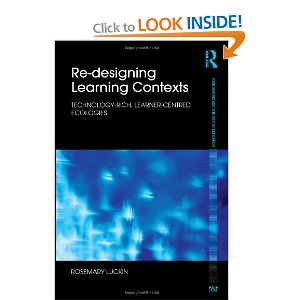 The Economist Intelligence Unit releases its report on Superfast Britain? Myths and realities about the UK’s broadband future today and has selected Education as a key area of interest. This is a balanced report that does not promote an unrealistic hype about the possibilities offered by superfast broadband. With respect to Education, the report concludes that “superfast broadband can be used to support educational transformation, but will not bring it about on its own”. This is a key point – it is not the existence of super fast or super fat broadband alone that makes the difference, what matters are the possibilities afforded when such infrastructure is combined with human enterprise and a landscape of consumerized technology in which almost everyone has a potentially sophisticated learning device in their hands or homes:TV, phone, or tablet.
The Economist Intelligence Unit releases its report on Superfast Britain? Myths and realities about the UK’s broadband future today and has selected Education as a key area of interest. This is a balanced report that does not promote an unrealistic hype about the possibilities offered by superfast broadband. With respect to Education, the report concludes that “superfast broadband can be used to support educational transformation, but will not bring it about on its own”. This is a key point – it is not the existence of super fast or super fat broadband alone that makes the difference, what matters are the possibilities afforded when such infrastructure is combined with human enterprise and a landscape of consumerized technology in which almost everyone has a potentially sophisticated learning device in their hands or homes:TV, phone, or tablet.
Jon James MD Broadband, Virgin Media made an interesting point yesterday evening at a dinner to launch the Economist report. He noted that when selling Broadband, speed was not something that customers necessarily found enticing. He suggested that one useful way to think about what people want to buy is that they want to ‘buy the internet’. This makes one wonder then what the combined package of fast and efficient infrastructure, plus sophisticated devices for all will enable companies to sell and people to believe they are buying? Will people believe that they can ‘buy learning or knowledge’ in the same way that they can buy the internet?
This is different from buying an application to teach maths or visiting a website full of resources about science, or joining Khan Academy, it is about the extent to which people may believe that they can ‘buy learning’ as a commodity in the same way that they ‘buy the internet’.
Working out if you have been successful in buying the Internet is simple, you either have or you haven’t got on-line, and you can finesse that by noting how quickly you can stream or download those big FAT videos. But, how will people know if they have succeeded in buying learning? The key commodity we might usefully be ‘selling’ at this point in time are the skills and knowledge that will enable people to make accurate and useful assessments about what they do know and understand, and what they still need to learn.
